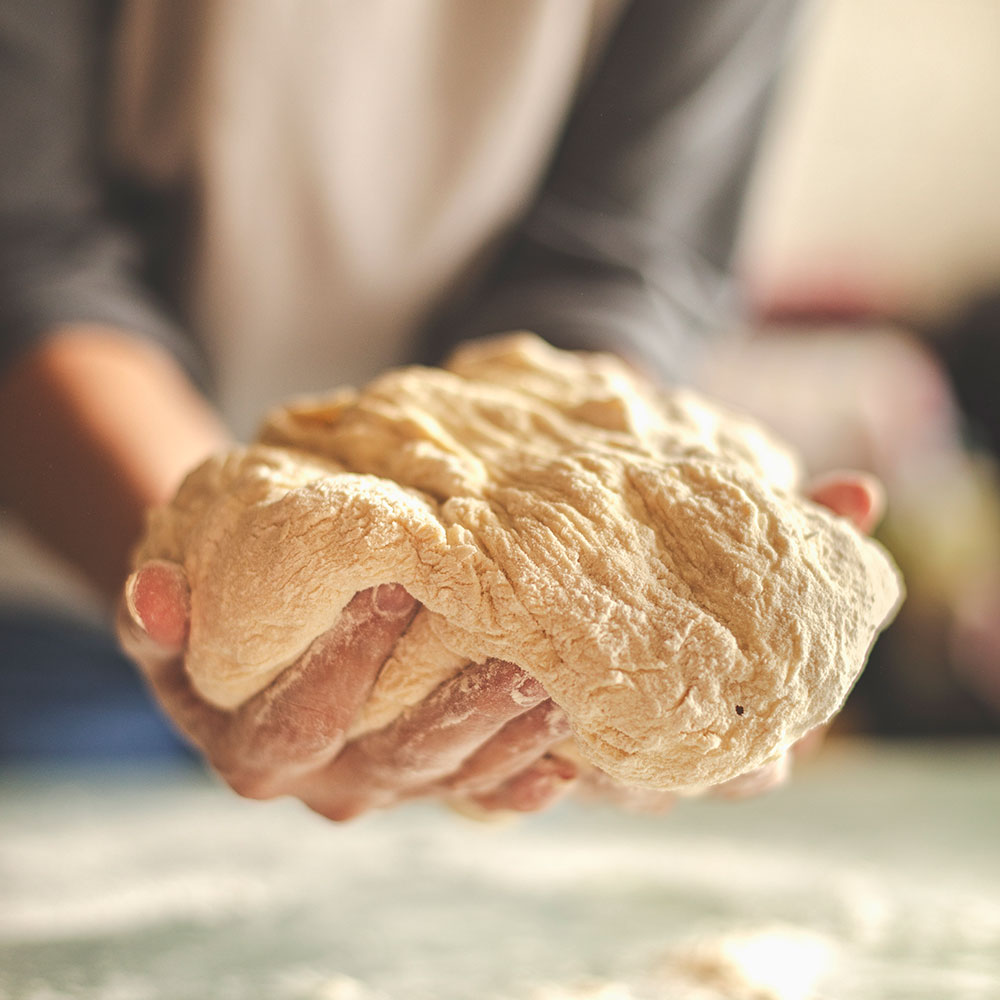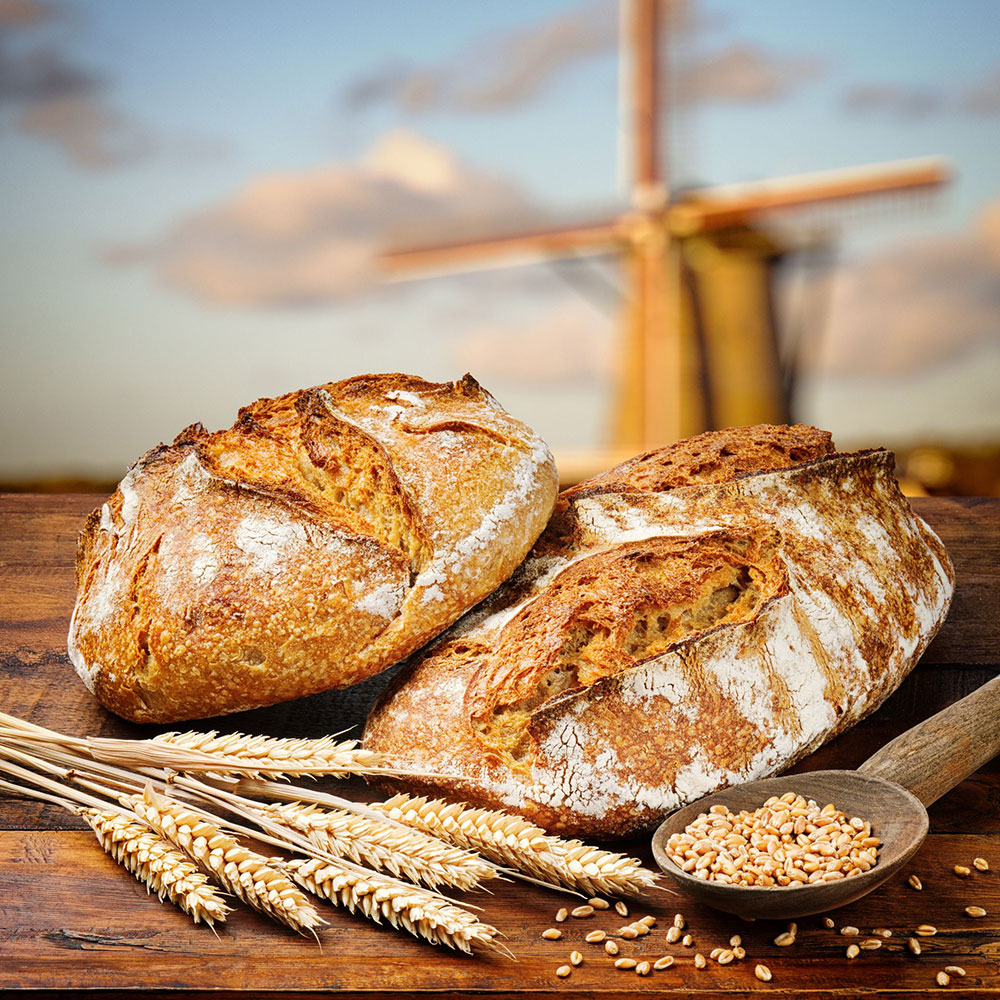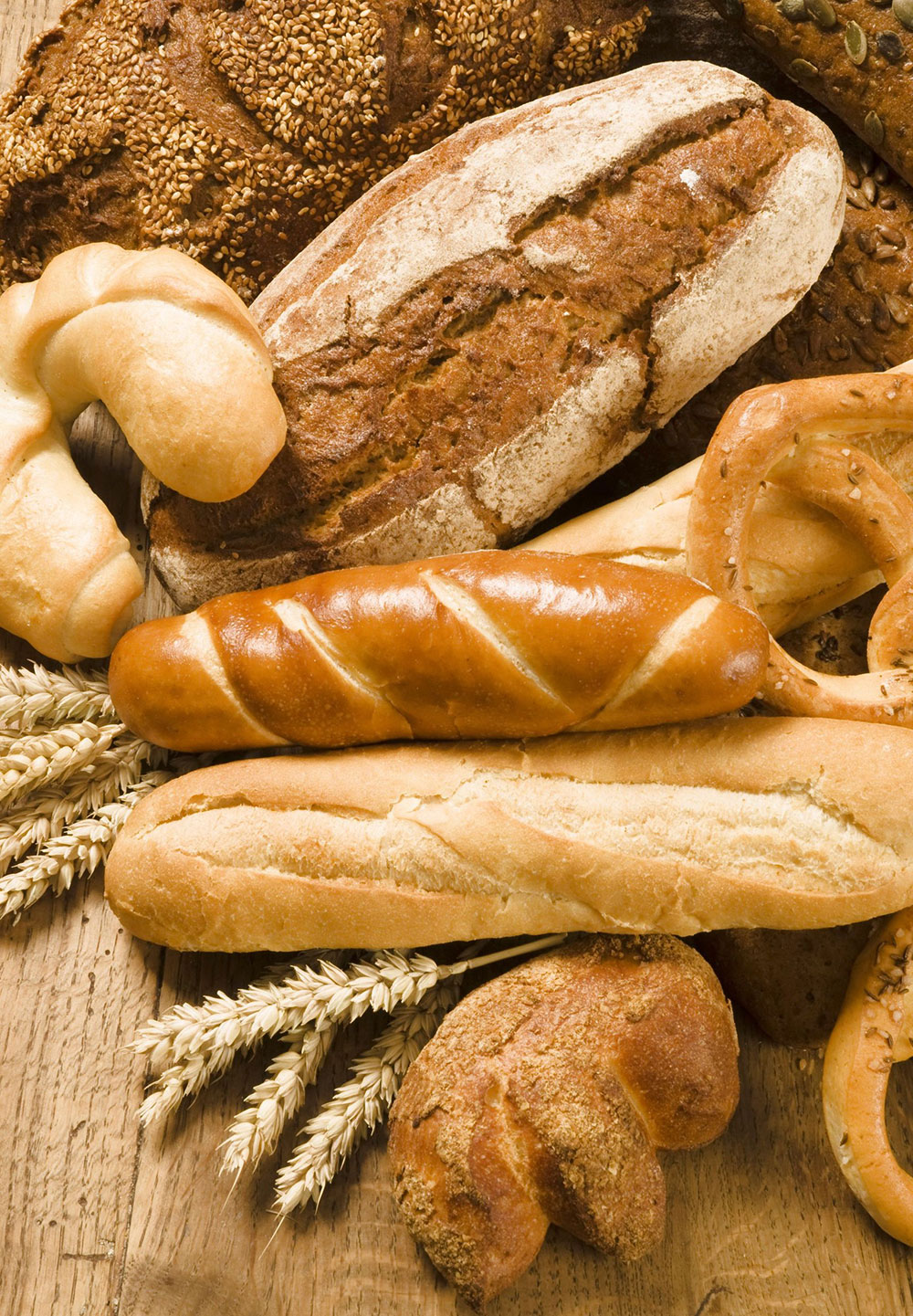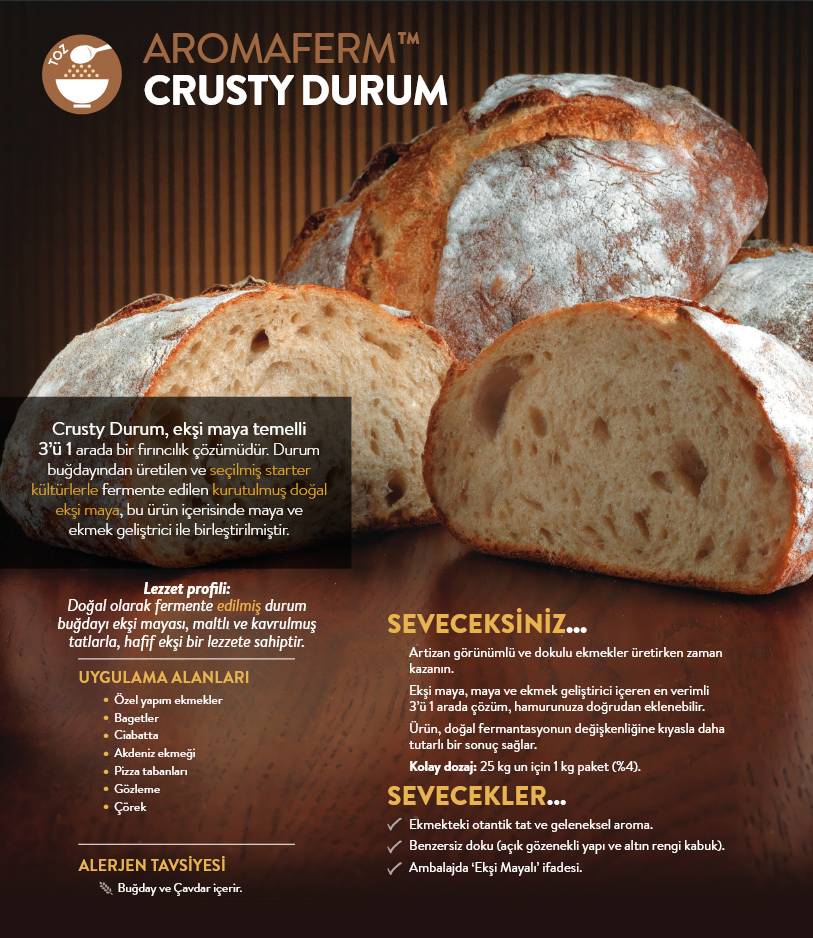History of Bread
History of baking dates back to 8000BC, when men used to crush grains on stones into small pieces, add water to obtain dough and cook it with fire on flat rocks. Primitive human beings broke the collected grain into small pieces; so they could either chew or digest it without making it soft. The founders and developers of bread making and bakery certainly experienced a series of trial and error processes.
Ancient Egyptians enjoyed bread making. Furthermore, bread was a symbol of their lives. It was so important for Egyptians that they put a piece of bread into graves; then the deceased would not lack it in the afterlife. As bread was their staple food, they were also paid in bread. Builders of the pyramids sold their labour in exchange for bread. The number of loaves indicated the financial status of individuals.
Egyptians used the yeast that they obtained from brewing fermentation and shaping the dough. However, they never figured out how dough was fermented. In time, they began to use different types of flour. They found different shapes and processed loafs like a work of art. According to tradition, an absent-minded Egyptian baker forgot to knead a piece of dough and added that piece into the next one. Therefore, he developed a method by accident.
Ancient Egyptians exported surplus grain to Greece. Greeks learnt bread making from Egyptians. Bread had become the principal food of the Greek people and in the Roman Empire. When eggs and oil were added, bread became a luxury product. Whiter breads were served on the tables of the rich, whereas the poor ate lower quality bread that was not that tasty. It is generally believed that the first mechanical mixer was developed by the Romans. The source of energy was horsepower. In Rome, bread was so indispensable that distributing bread was just enough to keep people content.


In Medieval Europe, the Normans began to use rye in bread making and to ferment dough under their blankets. Swedes tried to add the blood of reindeer while French used the blood of ox. Broad bread was popular, because it was both delicious and used as a plate. In time, several societies established Bakers’ Guilds in accordance with types of bread. Guilds protected bakers and offered them social status. If someone offended a baker, then he was considered to be in a serious trouble. Bakers who violated the rules of the guild was whipped in public, dragged along the streets or banned from the profession for life. The bakers, who sold lighter bread than the officially fixed amount, could not escape from these punishments.
Bread Courts, which were first establish by the English, decided and controlled the weight and the price of bread. During the Medieval Age, some settlements had public fireplaces for the poor, where they could bring dough and bake bread. This tradition was also the beginning of the bakery profession.
In the early 1800s, a law issued in England which fixed the price of bread with weekly wages, caused great turmoil. The law was abolished due to successive riots. Stealing bread was generally punishable with exile to Wales, a new colony. Striking developments of the 19th century paved the way for the modern baking industry to emerge.
In 1835, scientists like Caignard de Latour, Scwann and Kutsing concluded that yeast was a living organism that reproduces itself through budding. Meyer named the beer yeast as “Saccharomyces cerevisia” in 1838. In 1859, famous French scientist Louis Pasteur found out the organism that cause fermentation was yeast.
Furnace design and flour milling techniques were further developed. Emil Christian Hansen began producing fresh (wet) yeast from the 1870s, after he managed to obtain pure yeast particles. It was a revolution in terms of the solidity of the yeast. Bakers and brewers were not able to use yeast with their minds at peace.
Recently, discovery of bread improvers, growing of more quality grains, advanced techniques of milling as well as improvements of bakery tools made it possible to ferment dough in a better way and bake better breads. Bread has always been the principal flavour of meals. It is consumed every day, although its form changes from one continent to another. The development of bread has been in parallel with the development of humanity, cultures and societies.

 English
English
 Türkçe
Türkçe
 Română
Română
 български
български


